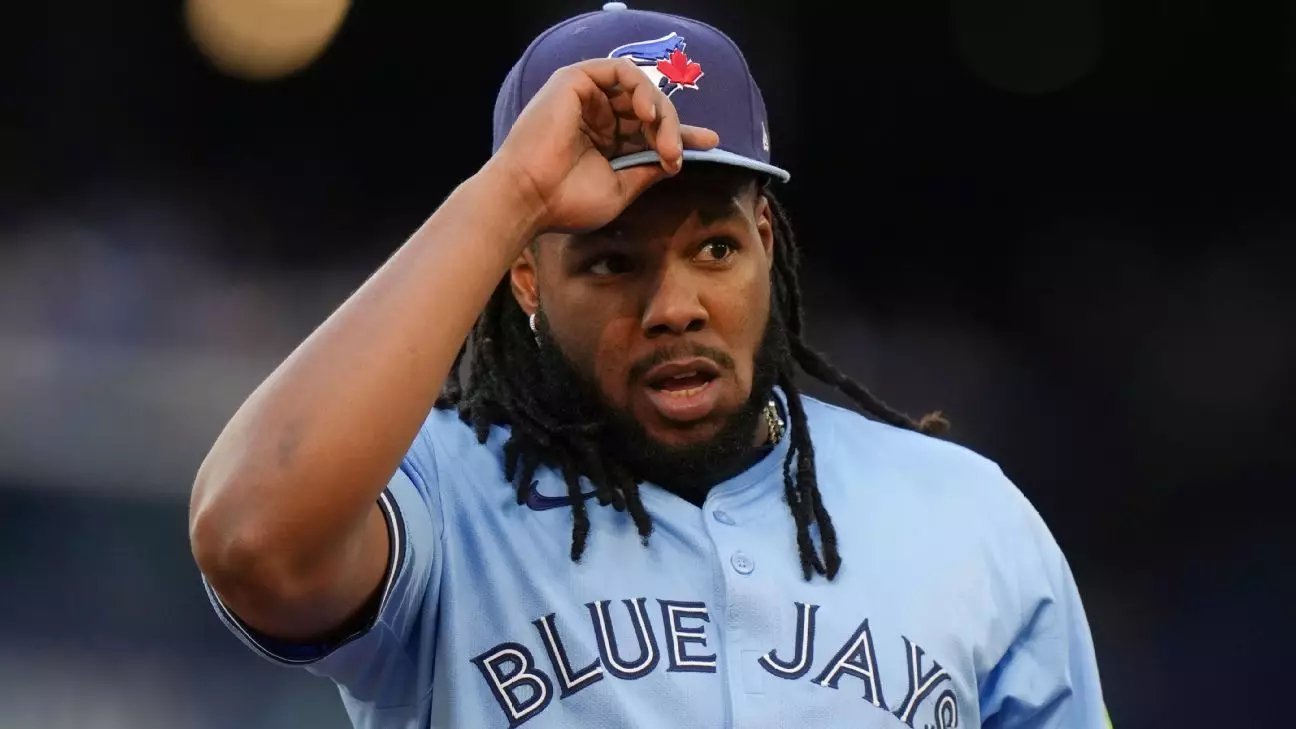The world of Major League Baseball (MLB) is no stranger to the complexities and intricacies surrounding salary negotiations, especially concerning arbitration-eligible players. The latest developments from New York highlight an important aspect of this process: the agreements reached by players just in time to avoid arbitration hearings, which can often be contentious and lead to public disputes between players and their teams.
Arbitration is a mechanism designed to resolve salary disputes between MLB players and their teams, allowing players to potentially secure pay commensurate with their performance and market value. This year was significant, with notable MLB stars like Vladimir Guerrero Jr. and Framber Valdez embracing their respective contracts to sidestep arbitration hearings. Guerrero, a first baseman for the Toronto Blue Jays, successfully negotiated a one-year contract valued at $28.5 million. This high figure not only reflects his substantial talent but also underscores the ongoing evolution in player salaries within the league.
Guerrero’s previous season saw him winning a substantial arbitration decision, netting a record-setting $19.9 million. This year’s contract signifies an upward trajectory in sports salaries and highlights the potential for negotiation leverage. Valdez, a left-handed pitcher for the Houston Astros, also capitalized on this arbitration window by securing an $18 million contract. Such agreements affirm the increasing degree of financial investment teams are willing to make in their key players.
A closer examination reveals that arbitration cases tend to hinge heavily on historical precedents. For instance, Juan Soto, who dealt with the New York Yankees last year, previously set a record for arbitration-eligible players at $31 million, surpassing Shohei Ohtani’s $30 million contract. The importance of these high figures cannot be overstated, as they often shape expectations for negotiating players. Soto’s recent signing with the New York Mets for a mind-boggling $765 million underscores the substantial financial commitments organizations are making to gain competitive advantage.
The context of these deals is imperative, particularly as players who were unable to reach agreements face the prospect of arbitration hearings. Teams that participated in successful negotiations, such as Toronto with Guerrero and the Astros with Valdez, can alleviate the stress and uncertainty associated with the arbitration process. However, for those who do not reach an agreement, the upcoming arbitration hearings scheduled to occur from January 27 to February 14 in St. Petersburg, Florida, loom large on the horizon.
In total, 155 players were eligible for arbitration at the outset of the negotiation period, demonstrating the number of individuals affected by this pivotal aspect of MLB economics. Statistics indicate that players have enjoyed a measure of success in arbitration, with clubs holding a slight historical edge. Notably, players achieved a favorable outcome in 9 out of 15 disputes last winter, signaling a potential shift in negotiating dynamics and empowering athletes in their pursuit of better financial arrangements.
The remaining eligible players, such as Kyle Tucker from the Chicago Cubs and Jarren Duran from the Boston Red Sox, face an uncertain future marked by the possibility of protracted hearings. The implications of these negotiations might ripple throughout the league, influencing contract strategies and salary expectations for years to come.
As the MLB continues to navigate an evolving landscape of player contracts, arbitration undoubtedly plays a pivotal role in determining the financial dynamics within the sport. The recent agreements secured by star players like Guerrero and Valdez exemplify the ongoing trend of increasing valuation of talent in baseball while shedding light on the complexities players face in negotiating their dues with team management.
Ultimately, how teams approach the arbitration process and how players leverage their on-field performances into off-field financial security will have lasting implications for the sport, shaping negotiations and setting precedents for future generations of baseball players. As the season unfolds and more arbitration negotiations come to light, fans and analysts alike will keenly observe how these financial landscapes evolve, further intertwining the fates of players and teams in the ever-competitive arena of Major League Baseball.


Leave a Reply